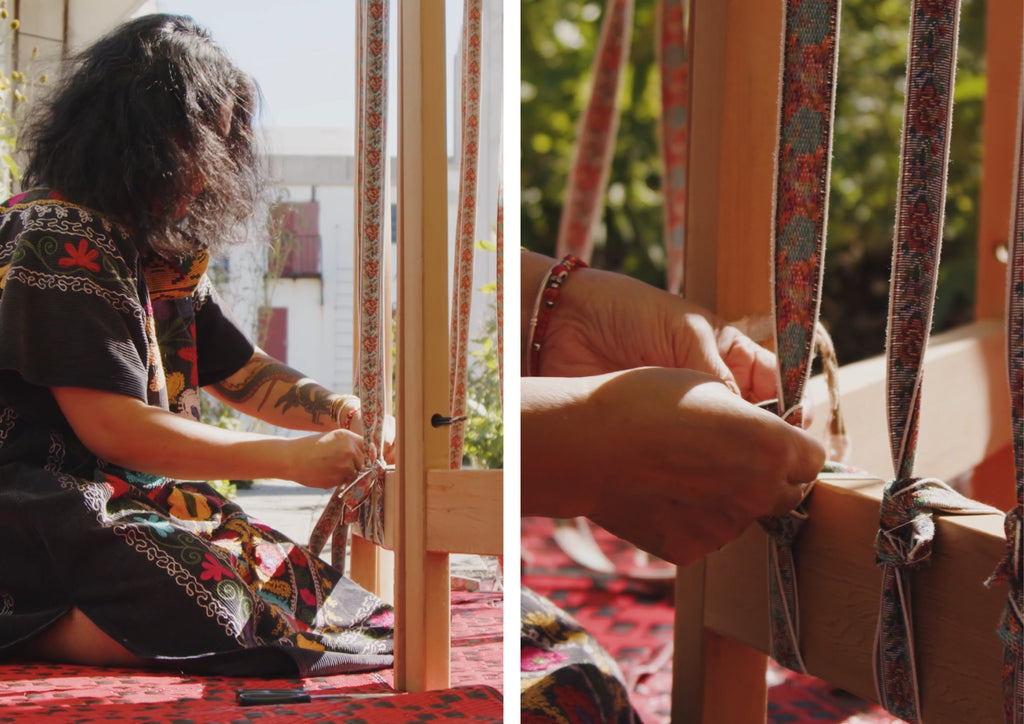
Across the top of three buildings in New York City are the world’s largest rooftop farms. Brooklyn Grange is an urban farm across those sites that not only grows food, but offers educational events, having both a positive ecological and social impact on the city. The verdant spaces encourage biodiversity and habitat for birds and insects, pollinators that are so important to protect. “We use plants native to this ecosystem,” co-founder Anastasia Cole Plakias says.
Brooklyn Grange was created by Anastasia alongside Ben Flanner and Gwen Schantz in 2010. The Long Island City farm was the first to be developed, with cultivated growing beds sprawling across an acre. The Navy Yard farm, which followed in 2012, and the Sunset Park farm, completed in 2019, bring the total to over five acres, with greenhouses, patios and paths. The vision is to “create more harmonious and ecologically sound urban communities, by designing and building green spaces that encourage meaningful connections with the natural world,” Anastasia says.

The farms were designed and installed with the support of engineers, who assessed and approved the sites to ensure they could hold the weight of the soil. The roofs are made from reinforced concrete slabs with green roof systems laid down before the soil, to prevent the roots from penetrating the surface. The soil is made up of mushroom compost blended with additional organic inputs and mixed with lightweight, porous stones for drainage. For the Navy Yard and Sunset Park farms, Brooklyn Grange worked with soil scientists to develop specific blends.
Focusing on diversity to support the soil, the farms harvest about 45,000kg of produce every year and grow microgreens and hydroponic lettuce in the greenhouse year-round. The vegetables are grown according to organic principles, without the use of synthetic or chemical fertilisers, insecticides or herbicides. The farms also act as a form of stormwater management, absorbing millions of litres of rainfall each year to help prevent sewer overflows; the Sunset Park farm can absorb 750,000 litres of water in the farm beds in a single rainfall.

In celebration of our Autumn Winter collection, TOAST hosted a series of workshops at the Navy Yard farm. The location ties in with our seasonal theme of Rewilding, and the event highlighted the values Brooklyn Grange and TOAST share. “Our goal is to be a good business: we aim to operate in a community with people and organizations with whom we share an ecosystem,” says Anastasia. “That is an ethos TOAST demonstrates through an emphasis on repair rather than replacement, a vision of a less extractive mode of doing business.”
The workshops explored reconnecting us with our innate creativity through expressive mark-making, embroidery and handweaving. “I was moved by the TOAST event,” Anastasia says. “I've hosted and attended countless events at the farm over the years, but after the pause in gatherings due to the pandemic, and the challenges we small businesses faced, it was invigorating to meet with strangers and new friends again. It was exactly the spirit-lifting experience I needed to buoy me across the last leg of our farming season.”
Guests joined us for a botanical bundle dying workshop with Natalie Stopka, which saw the artist and educator guiding participants through a series of drawing exercises to consider the beautiful, plentiful and accessible plants around us. Experimenting with fresh blossoms and dye extractions, Natalie explained how to naturally infuse a garment with rich pattern and colour.


We also hosted a workshop to explore floral folk embroidery with Jordana Martin, founder of Blue, The Tatter Textile Library in Brooklyn, New York. Guests drew inspiration from embroidery books and vintage textiles in the Tatter Textile Library archive, as well as freshly picked flowers from the Brooklyn Grange wildflower meadow, then created a hand-stitched pattern on a TOAST washed linen napkin using traditional folk embroidery techniques.
Finally, there was a large-scale communal weaving installation, which guests were invited to contribute to, led by Cynthia Alberto, founder of Weaving Hand, Brooklyn. During the event, visitors learned the basics of handweaving on a large eight-sided, circular-frame loom. They used repurposed fabrics, highlighting the importance of reusing and repurposing textile fragments. “We talked about business, writing books, motherhood, building community, and everything in between,” Anastasia says. “It was such an honour to share our farm with an inspiring community of thought leaders and makers.”
Lead image courtesy of Brooklyn Grange.
Film stills by Brian Hartley for Three Strikes Incorporated.
Add a comment
1 comment